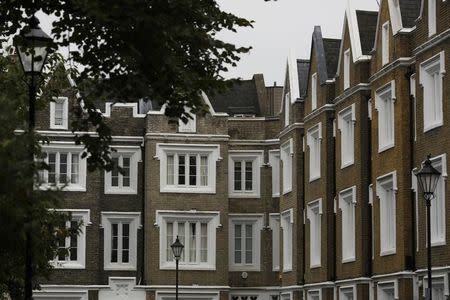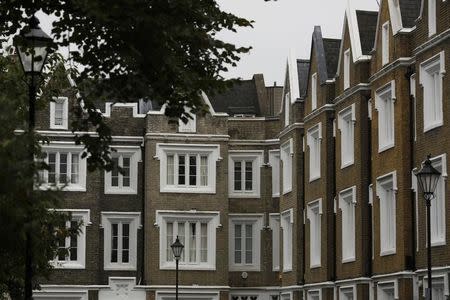Duty hike sees slowest London prime property price growth in six years - data
By Costas Pitas
LONDON (Reuters) - An increase in a property levy paid on top-end homes in London and uncertainty over future tax changes saw the lowest price growth in the capital's prime property market in just over six years, a consultancy said on Wednesday.
Knight Frank's prime central London index rose just 0.9 percent last month from a year ago, the lowest annual growth since October 2009.
Britain cut its stamp duty tax, which is paid when a home is bought, for most buyers last December, but those buying million-pound homes saw the amount of tax increased, affecting many London properties.
"After a year under the system ... a growing number of vendors have begun to set asking prices that reflect the more subdued level of demand," Head of London Residential Research Tom Bill said in a note.
In some of the capital's most sought-after areas such as Notting Hill, Chelsea and Belgravia, where properties regularly sell for well over 1 million pounds, prices fell in November.
The biggest drops were in west London with prices in Knightsbridge, home to department store Harrods, down 5.6 percent whereas Islington saw the biggest rise, followed by the financial City of London district, where prices rose 5.9 percent.
Official data shows London property prices saw double-digit price growth every month last year but that the pace had slowed this year as the effect of a government help-to-buy scheme begins to wane and some homebuyers are priced out of the market.
Last week, Britain said it would raise the stamp duty on second homes and for those buying properties to rent them out from April, which Knight Frank said had added uncertainty to the London market going forward.
"The chancellor's latest announcement came as tentative signs have begun to emerge that buyers and sellers are adjusting to previous stamp duty changes," Tom Bill said.
But a rate rise by the Federal Reserve, which many expect this month, could boost demand for London property as sterling becomes weaker compared to the dollar, enticing buyers purchasing homes with the U.S. currency, Knight Frank said.
(Reporting By Costas Pitas; editing by Stephen Addison)




